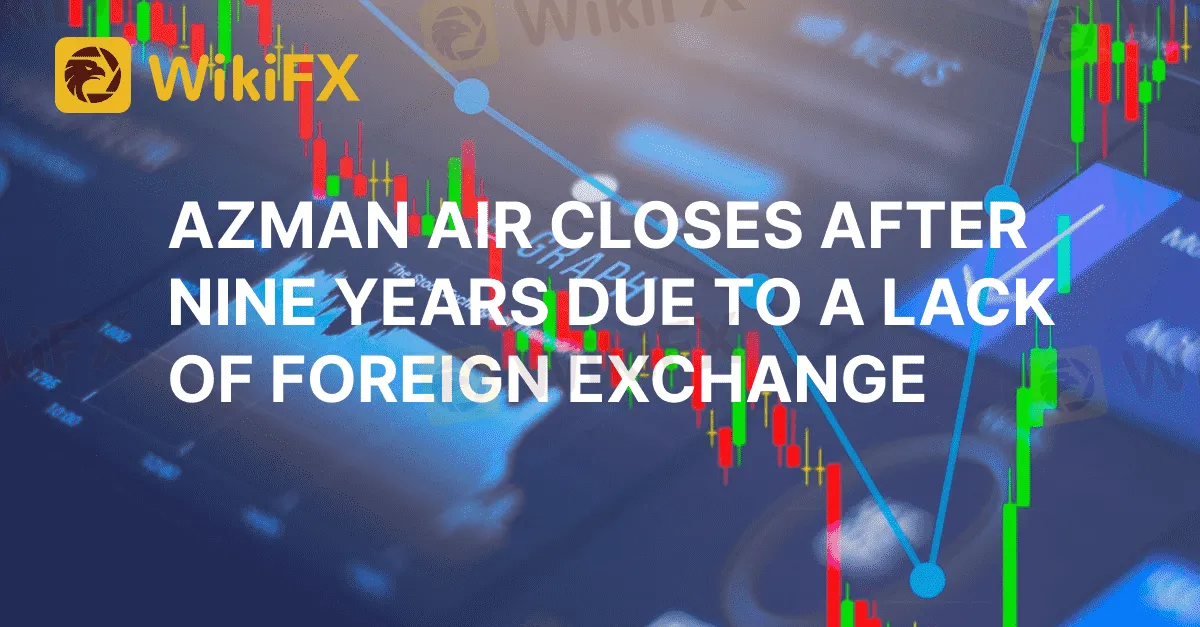简体中文
繁體中文
English
Pусский
日本語
ภาษาไทย
Tiếng Việt
Bahasa Indonesia
Español
हिन्दी
Filippiiniläinen
Français
Deutsch
Português
Türkçe
한국어
العربية
AZMAN AIR CLOSES AFTER NINE YEARS DUE TO A LACK OF FOREIGN EXCHANGE
Abstract:Azman Air, who had been in operation for nine years, stopped operations because it couldn't access foreign exchange to maintain its fleet of aircraft, becoming the second operator to go out of business in the previous four years.

Azman Air, who had been in operation for nine years, stopped operations because it couldn't access foreign exchange to maintain its fleet of aircraft, becoming the second operator to go out of business in the previous four years.
According to insiders in the industry, the airline had four planes in for repairs but was unable to bring them back because of a currency shortage.
Nurudden Aliyu, a representative for the airline, asserted that flights will soon resume, as management had merely halted operations because it was unable to bring back its flown-out for repair aircraft.
However, industry insiders claim that the airline's closure was brought on by the owner's inability to obtain foreign currency, and that Abdulmunaf Yunusa, the airline's chairman, notified the Nigerian Civil Aviation Authority (NCAA) of the decision to halt operations.
The airline still holds a current Air Operator's Certificate (AOC) with the NCAA, but it will expire at the end of August and will be revoked after 90 days in accordance with Nigerian Civil Aviation Regulations (Nig.CARs) for any operator that does not renew their certificate.
Since Tuesday, the NCAA's administration and Azman Air's management have apparently held a number of planning talks over the airline's intention to cease operations.
Since its founding nine years ago, Azman has experienced some turmoil. In the past year, it has shut down more than three times.
The NCAA had to cease operations over the previous two years for a number of reasons, including a N1.2 billion regulatory debt.
In the first quarter of 2022, the airline was required to sign a Memorandum of Understanding (MoU) with NCAA outlining the terms of its repayment of the amount mentioned above.
The airline had charged it with failing to pay the TSC and CSC (Ticket Sale Charge and Cargo Sale Charge), respectively.
Additionally, on August 3, 2023, Magaji Misau, the organization's human resources manager, issued a memo titled “Placement of Leave Without Pay” that asked all employees to take time off, with the exception of eight individuals whose names were not stated.
As you are aware, due to the transportation of our aircraft for C-checks and the MROs' extended estimated time of completion, our domestic activities have been suspended for a while.
In light of the foregoing, management was instructed to document and explain its decision to put all employees on unpaid leave beginning August 1, 2023.
While speaking with aviation reporters, Capt. Musa Nuhu, Director General of the NCAA, stated that existing airlines have a deadline by which they must comply with the revised regulation that encourages that moving forward, a new airline must have a minimum of six airplanes.
According to him, if airlines, for example, have three planes and lose one of them, it becomes difficult for them to maintain operations, which leads to flight delays, cancellations, and eventually the cessation of operations.
The type of operations you plan to conduct will determine how many aircraft you need. Think about what would happen if someone arrived with just one or two aircraft, one of which went out of business, and sold tickets to the passengers. The fact that you own six planes demonstrates your excellent financial management skills for managing an airline.
If everyone owns one or two aircraft, we will continue to experience this issue. That needs to be prevented. People will criticize, but each nation is unique. Although we must consider our own special past in order to find solutions, laws are not set in stone. The law would be reevaluated if the circumstance changed. We don't have to wait five years before making changes when they are required, he remarked.

Disclaimer:
The views in this article only represent the author's personal views, and do not constitute investment advice on this platform. This platform does not guarantee the accuracy, completeness and timeliness of the information in the article, and will not be liable for any loss caused by the use of or reliance on the information in the article.
Read more

Silver surges past $33—are you ready for what comes next?
Silver has once again become the center of attention in global financial markets.

171 years! One of this country’s largest crypto-related fraud
A federal court in Brazil has handed down one of the harshest sentences in the country’s history for a crypto-related fraud, jailing three executives of the now-defunct Braiscompany scheme to a combined 171 years behind bars. The case, which saw some 20,000 investors lose approximately R$1.11 billion (about USD 190 million), underscores Brazil’s intensifying crackdown on unregulated cryptocurrency operations

Protect Your Portfolio in the Storm | What Are Safe Haven Assets?
Gold surged to an all-time high on Tuesday, driven by renewed weakness in the US dollar, ongoing trade war tensions, and critical remarks from President Donald Trump aimed at the Federal Reserve. These factors fuelled strong demand for safe-haven assets, pushing bullion above US$3,485 an ounce for the first time. But what exactly are safe haven assets? Why is everyone raving about them?

Gold Breaks $3,300 Barrier—Time to Celebrate or Caution?
Gold hits record high—rally or risk ahead?
WikiFX Broker
Latest News
eXch Exchange to Shut Down on May 1 Following Laundering Allegations
How a Viral TikTok Scam Cost a Retiree Over RM300,000
JT Capital Markets Review
FCA Proposes Simplifying Investment Cost Disclosure for Retail Investors
Fresh Look, Same Trust – INGOT Brokers Rebrands its Website
FCA Issues Alerts Against Unauthorised and Clone Firms in the UK
Consob Orders Blackout of 9 Fraudulent Financial Websites
Tradu Joins TradingView for Seamless CFD and Forex Trading
Japan Issues Urgent Warning on $700M Unauthorized Trades
Silver surges past $33—are you ready for what comes next?
Currency Calculator


